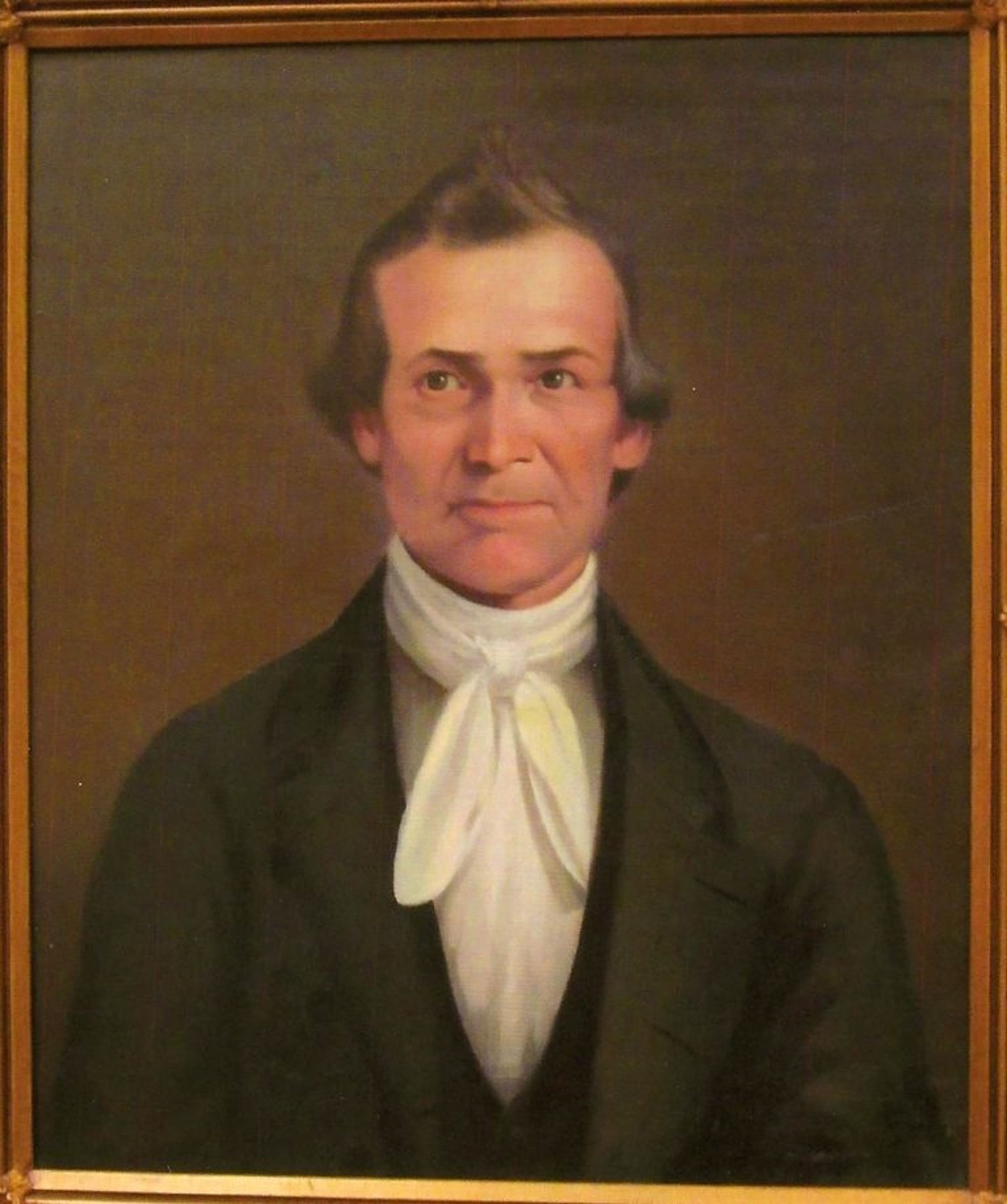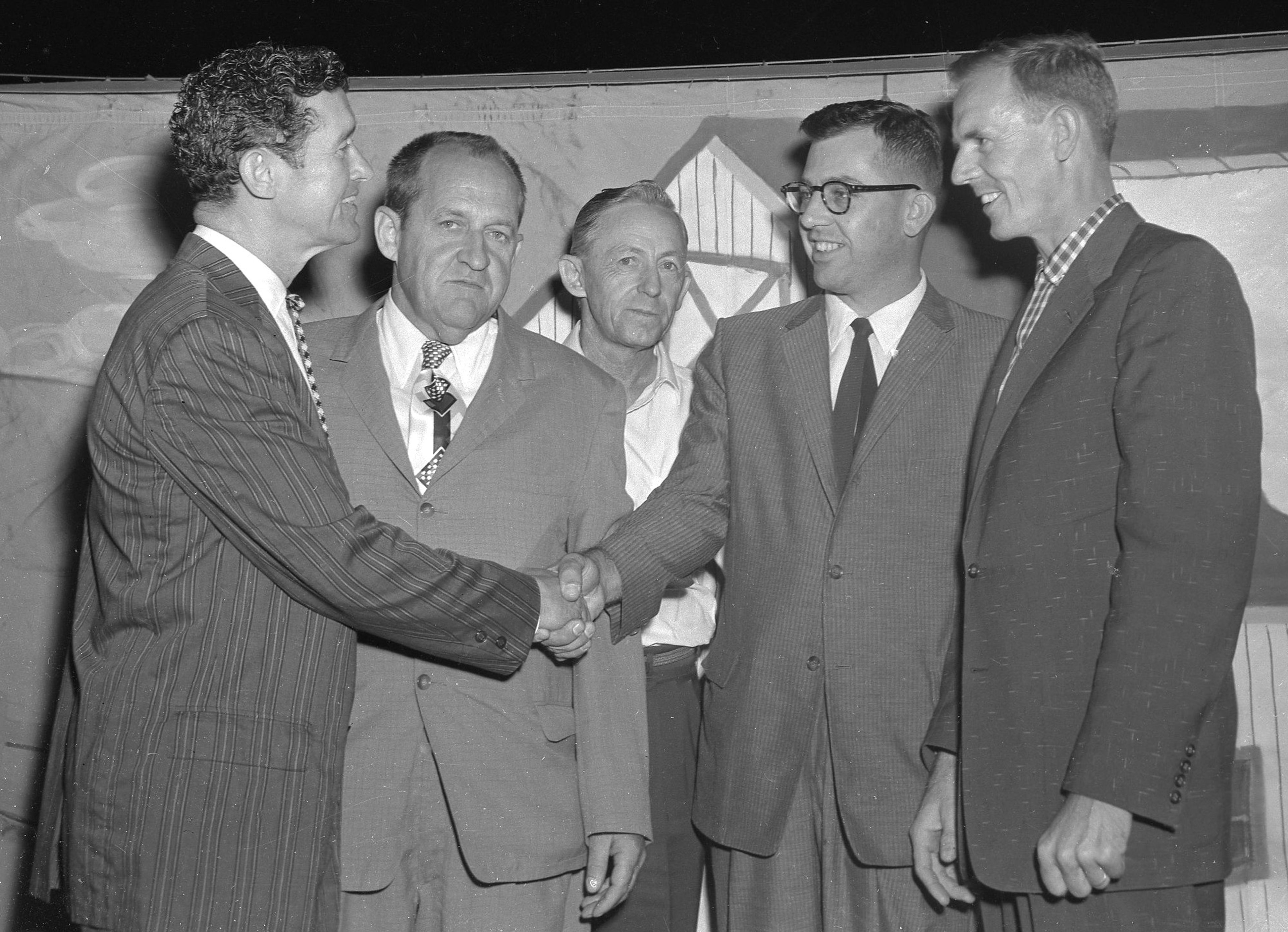After the death of his first wife, Marie Berthiaume Lorimier, widow of Louis Lorimier, Dr. John Logan continued to operate his businesses in Perry County and went on to be an early leader in Jackson County, Illinois. Dr. Logan, born Nov. 16, 1788, was the son of John Sr. and Elizabeth Pharrell Logan, immigrants from County Monaghan, Ireland.
The family landed first in Maryland in 1793 and later moved to Scioto County, Ohio, where Dr. Logan's mother died in about 1804. In about 1810, John Sr. and children moved to present-day Perry County, where Dr. Logan would purchase land and marry Marie. Initially, his saw and grist mills on the property he purchased from his brother-in-law, Francois Berthiaume, were well-known landmarks. Dr. Logan deeded his father, John, 100 acres from this tract, which John Sr. retained until 1832.
Shortly after the death of his first wife in 1823, Logan relocated across the river to Jackson County, where he married Elizabeth Jenkins. He continued to retain the mills in Missouri until losing them to pay a debt in 1825. Later, in 1833, he purchased a tract at the mouth of Apple Creek from Pierre Menard, which he sold three years later to Amzi Osborn. Osborn platted a new community, Birmingham, on this land. Despite its favorable location and nearby iron deposits, Birmingham never really grew.
Dr. Logan became successful in Illinois with his medical practice and land purchases. When the Black Hawk War began in 1832, he enlisted in Jenkin's Company of the Illinois Volunteer Militia, U. S. Army, as its surgeon. Logan served from July 13 until the conclusion of the war on Aug. 10.
When Logan settled in Jackson County, the county seat was at the now extinct town of Brownsville, due west of Murphysboro near Conrad Will's salt works. The courthouse burned in 1843, prompting the voters to move the county seat to a central location. Murphysboro became the new county seat in September 1843. Dr. John and Elizabeth Logan donated land for the new county seat, Murphysboro, named for one of the commissioners who chose the site, William C. Murphy.
Dr. Logan had a large family, beginning with two daughters with his first wife, Marie. One of these, Elizabeth, died in infancy, but Louisa V., born in 1816, lived until 1895, married three times and had seven children. Dr. Logan and his second wife, Elizabeth Jenkins, were parents of 10 children, six of whom survived to adulthood. Their eldest son, John Alexander, born Feb. 9, 1826, became the most famous family member. As Gen. John A. Logan, he had a successful career as a Union commander in the Civil War, a member of the state and U. S. House of Representatives, U. S. Senator and was instrumental in designating Memorial Day.
So, Dr. John Logan was the second husband of Louis Lorimier's widow, veteran of the Black Hawk War, instrumental in civic affairs and father of Gen.John A. Logan. His role in local history is underappreciated.
Bill Eddleman, Ph.D. Oklahoma State University, is a native of Cape Girardeau County who has conducted genealogical research for over 25 years.











